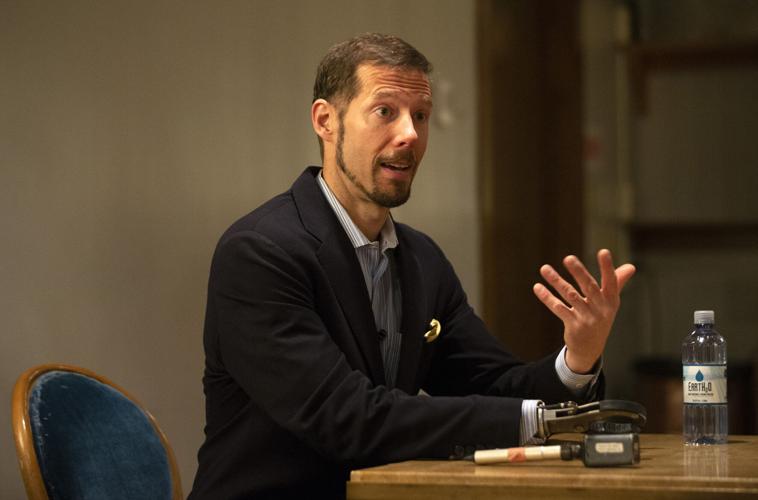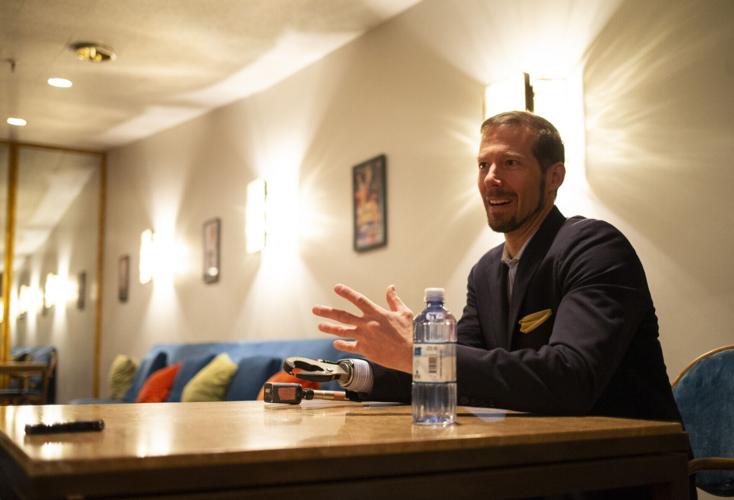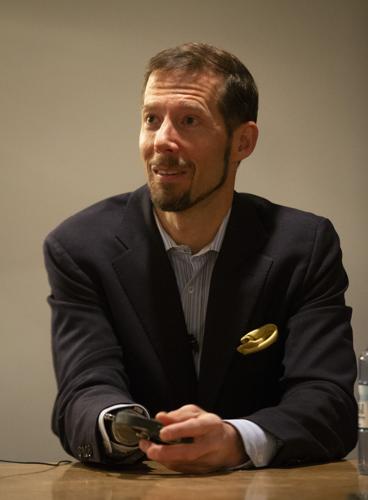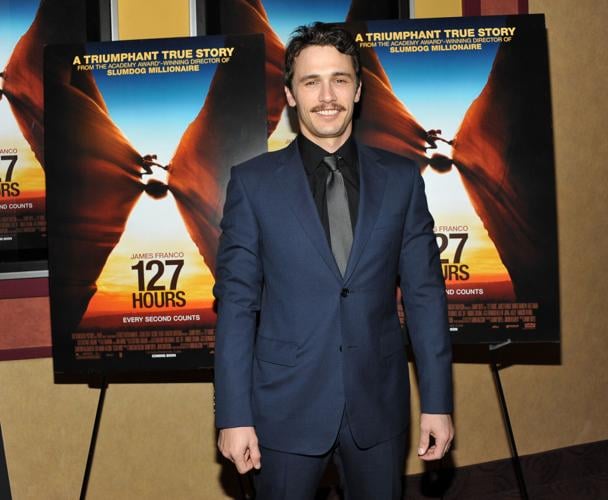As an avid climber and adventurer, Aron Ralston often imagined countless different scenarios of how he’d save himself if something went wrong.
But he never thought of the one that would end up making him famous after he cut off his own arm in 2003 to escape from 127 hours stuck in Utah’s Bluejohn Canyon. That experience of being trapped by an 800-pound boulder taught him a lot about the importance of taking safety precautions when venturing out into nature, as well as some valuable life lessons he loves to share with audiences like the one at Yakima’s Capitol Theatre on Wednesday morning.
“I’ve made a choice to see that I didn’t lose anything,” Ralston told the crowd at the Yakima Town Hall speaker series event originally scheduled for the 2020-21 season. “I’ve only gained from all of this.”
The real-life inspiration for the Oscar-nominated movie “127 Hours” remains enthusiastic about mountaineering, an activity he began to take seriously while working as an engineer for Intel and living in Tacoma more than two decades ago. Ralston summited Mount Rainier, Mount Baker, Mount Shuksan and others in the Pacific Northwest, and he’s still the only person to have reached the top of all 59 named Colorado mountains above 14,000 feet on solo winter climbs.
The last of those summits came in 2005, after the accident, and Wednesday he expressed an interest in one day returning to the Pacific Northwest to summit Mt. Adams for the first time. Ralston doesn’t let his injury slow him down, in large part thanks to prosthetics he’s helped design.
His harrowing near-death experience brought a new perspective when facing other challenges, including depression, divorce and the death of his father. Ralston’s shared the importance of choosing to see the positives in different situations all over the globe, both in-person and then virtually throughout the pandemic.
“We get to choose to make it into a tragedy or to use it as maybe an opportunity for transformation, even triumph in the end,” Ralston said in an interview with reporters prior to his presentation. “The mindset we take around when something happens can largely determine the outcome of it.”
Of course, he also recognizes when venturing out into nature, preparation beforehand can be just as critical and sometimes even more important than the response. Failing to bring any communications devices or even telling anyone where he was going nearly cost Ralston his life, although he credits his mother for reaching out to authorities who sent out the helicopter that arrived just in time to save him.
Today, Ralston always lets family know where he’s headed and brings a personal locator beacon, or PLB, so he can send out an SOS if necessary. Other essentials can be just as valuable, such as a knife much sharper than the dull blade unable to cut through Ralston’s bone.
It was at that point he recalled resigning himself to death in the slot canyon where he recorded a final message and scratched out an epitaph in the Navajo Sandstone. As night arrived and brought temperatures just above freezing, Ralston closed his eyes and waited to die.
Instead, he experienced a vivid out-of-body experience he interpreted as a vision of the future, where he saw himself in a living room with a young son. That inspired Ralston to keep fighting and eventually figure out a way to break his two bones on the rock before cutting through the skin, muscle, tendon, nerves and ligaments to detach his arm.
“I think if you’d told me, ‘this is going to happen, Aron,’ I think I would have said, ‘OK, well, that’s a little bit too far,’” Ralston said. “That’s again, this beauty of when that crisis, when that trauma happens, you get to find out and I sit here today, almost 19 years later and I know what I would do if that were to happen.”
He’s returned to that spot and that boulder 13 times, always to appreciate everything it gave him. Ralston also works to protect the Bluejohn Canyon to prevent it from becoming a site for uranium mines or oil and gas drilling.








(0) comments
Comments are now closed on this article.
Comments can only be made on article within the first 3 days of publication.